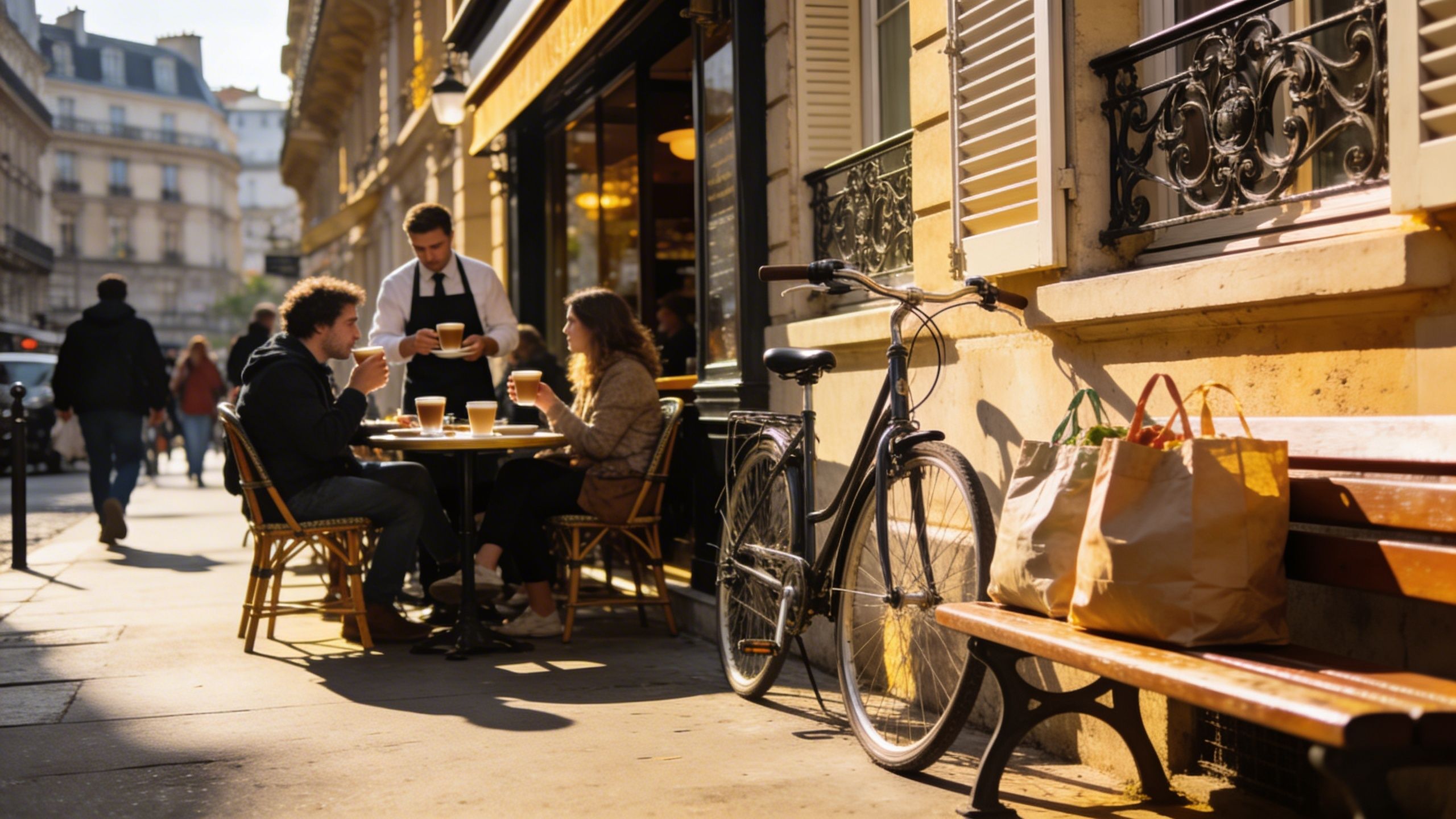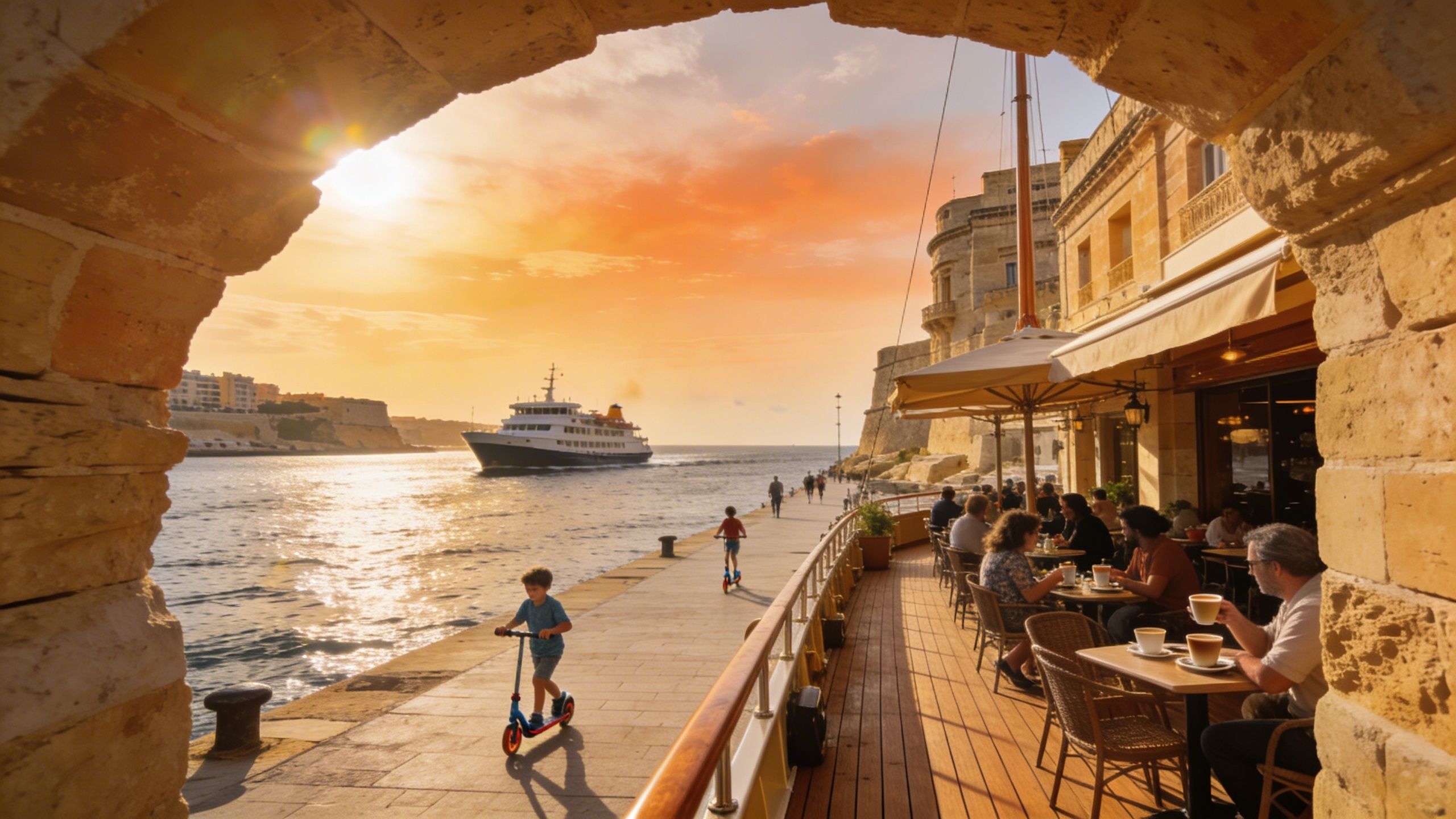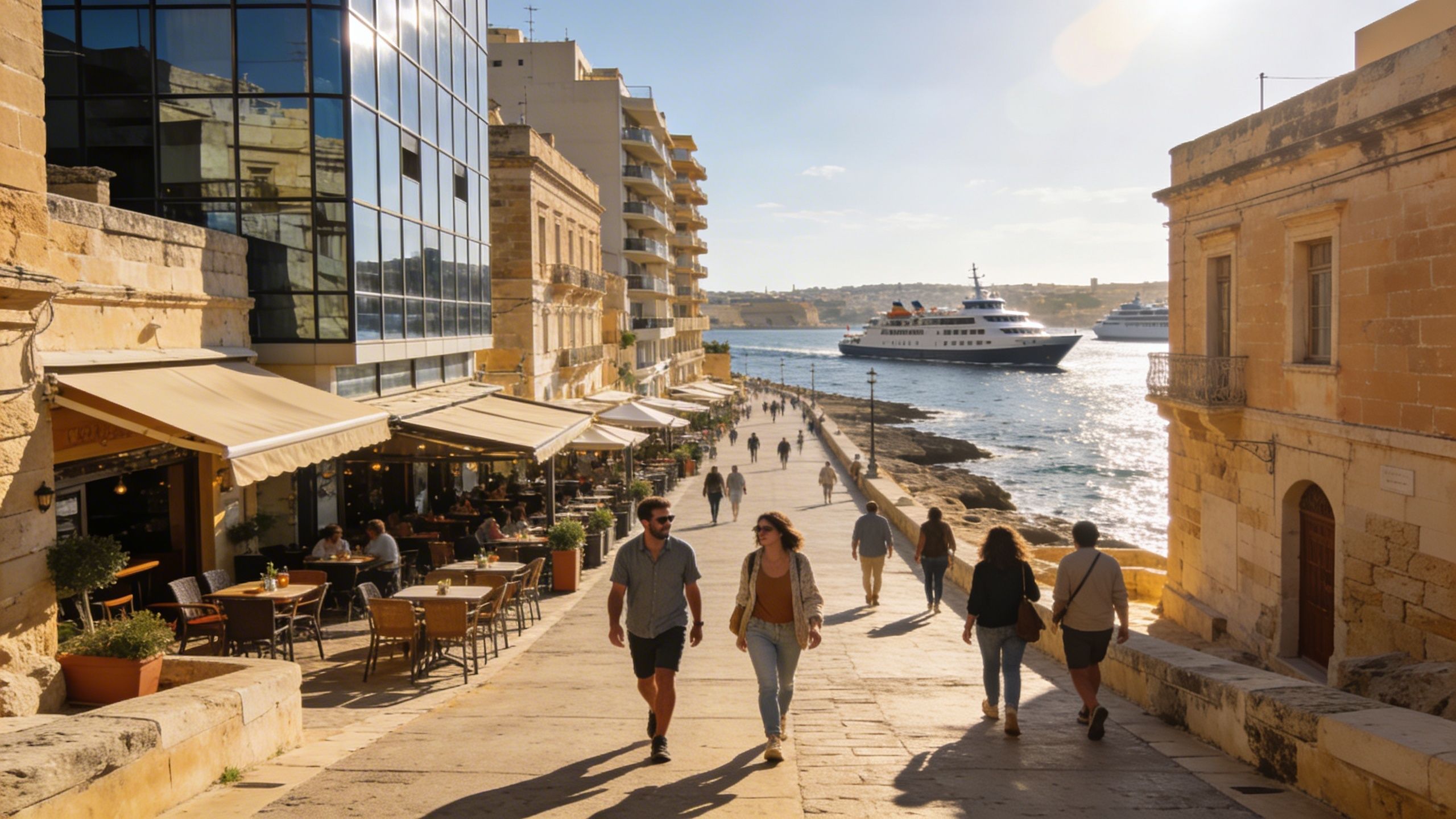Croatia: Match the Lifestyle to the Market Signals
Croatia offers coastal romance and year‑round neighbourhood life — but recent tax and rental policy shifts mean buyers must match lifestyle ambitions to registry clarity and local rules.
Imagine a morning in Split: espresso on a narrow street, fishermen hauling in the day's catch, and limestone buildings cooling in the shade. Croatia feels immediate — sea, market stalls, church bells — but beneath that Mediterranean ease is a market changing quickly. Recent policy moves and fast-moving coastal demand mean the lifestyle you fall for can come with hidden regulatory and price signals. Understanding those signals is the difference between romantic buying and a confident, transparent purchase.
Living the Croatia lifestyle
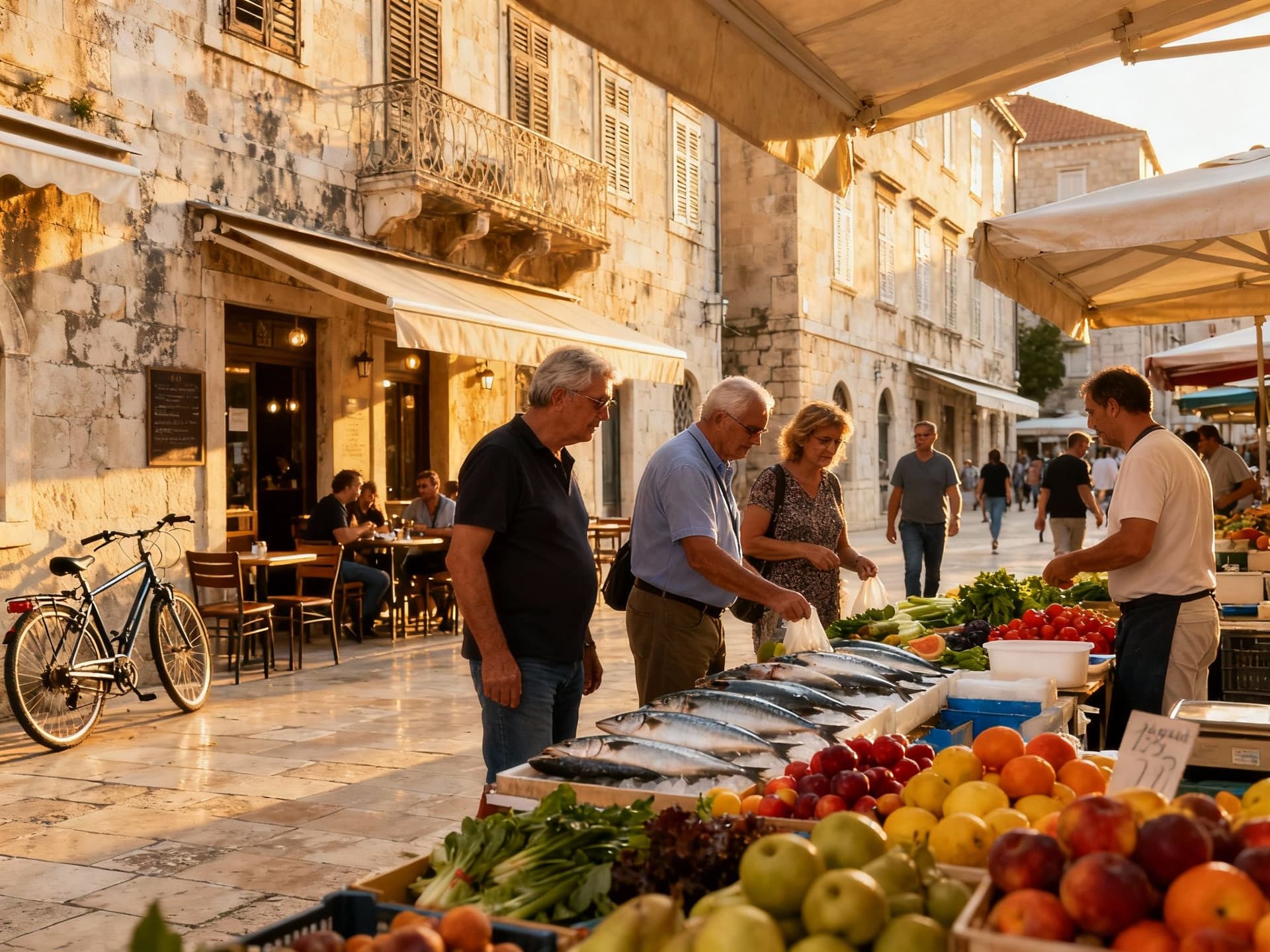
Croatia moves at two paces: the slow, social rhythm of inland towns and the brisk, tourist-driven tempo of the coast. In Zagreb you get daily markets and pragmatic urban life; on Hvar or Rovinj the day bends toward terraces, boats, and seasonal commerce. Living here means calibrating your expectations to that rhythm — if you want everyday neighborhood life, look beyond waterfront postcards.
Neighbourhood spotlights: where locals actually live
In Split, find locals on streets behind the Riva — Varoš and Bacvice offer village-scale life with cafés and bakeries. On Korčula island, Lumbarda retains fields and family-run konobas rather than short-let flats. In Zagreb, the neighbourhoods of Maksimir and Trešnjevka combine parks, schools and steady residential markets — places where life is year-round, not seasonal. These are the areas where property tends to keep value for residents, not only visitors.
Food, markets and the weekday rhythm
Picture walking into Dolac market in Zagreb at 07:30, buying cheese and seasonal fruit, then sipping coffee while morning light hits red rooftops. Along the Adriatic, fish markets in Split and Zadar set the day's menu. For buyers, this matters: proximity to markets, a good grocer, and an active street will shape how you use a kitchen, terrace or balcony — and whether a property feels like home nine months of the year.
- Lifestyle highlights to prioritise when house‑hunting
- Daily market access: Dolac (Zagreb), Pazar (Split) or Riva vendors for fresh food
- Year‑round neighbourhoods: Trešnjevka (Zagreb), Varoš (Split), Lumbarda (Korčula)
Making the move: practical considerations that preserve the lifestyle
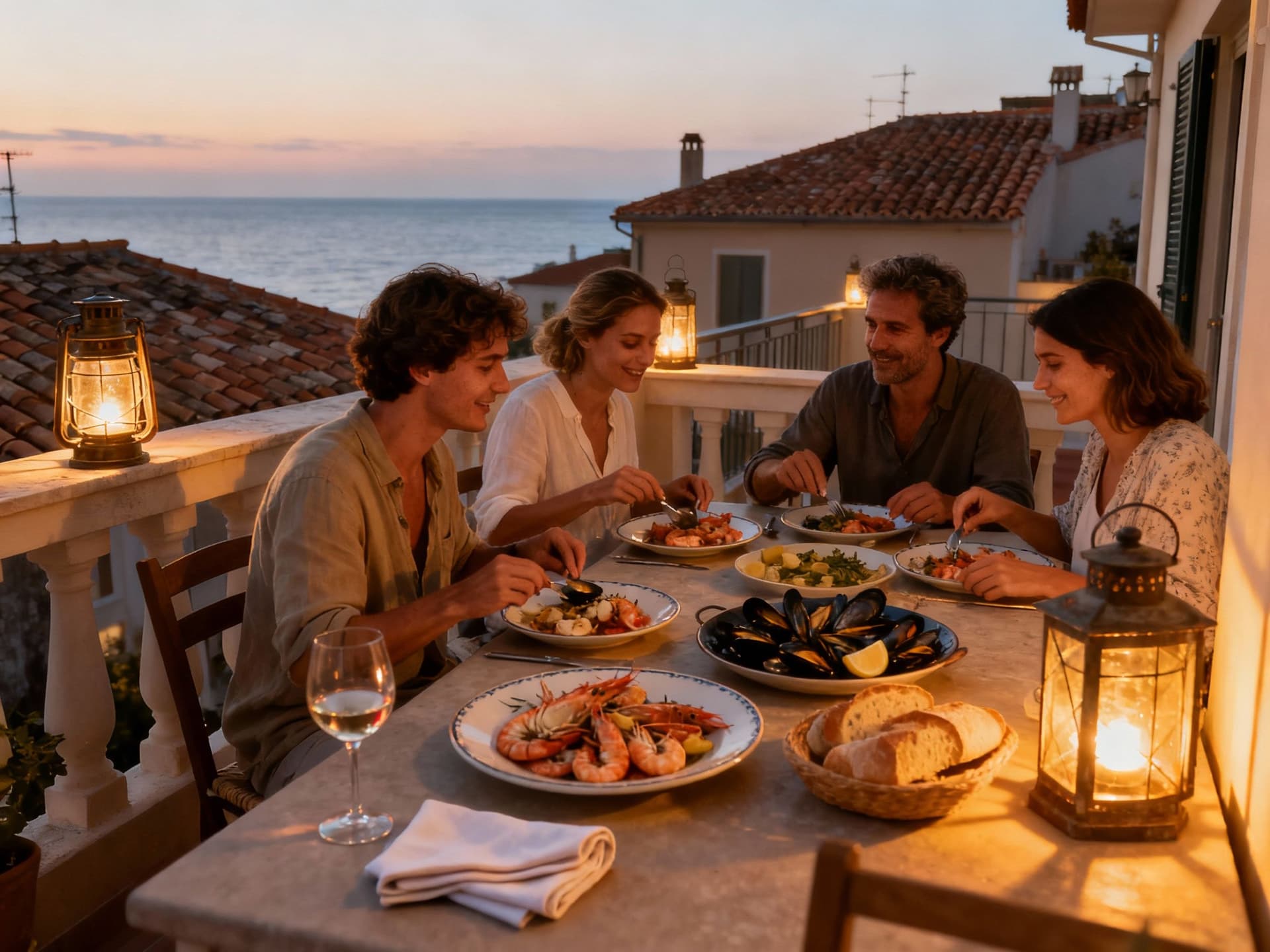
If the coast sells the dream, the data sells the caution. House prices in Croatia have risen notably in recent years, particularly in coastal cities, and indexes show sustained growth into 2025. That growth changes the risk profile: buying a holiday-view apartment is different from buying a year‑round home. Match your purchase type to the neighbourhood's supply dynamics and policy direction; otherwise rental rules or new taxes can quickly change returns.
Property styles and how they'll shape your daily life
Stone townhouses bring authenticity but often need renovation and modern insulation; coastal apartments offer convenience but can be subject to short‑term rental demand. A gardened house in Istria buys privacy and seasonal quiet. Consider maintenance realities: sea‑air accelerates corrosion; island logistics increase renovation costs. The right property type aligns with how often you intend to live there and whether you prioritise rental income or permanence.
Working with local experts who preserve the lifestyle you want
- 1. Ask agents for living examples: which nearby properties are owner‑occupied year‑round? 2. Request recent comparable sales, not asking prices, to assess real market movement. 3. Insist on a walk‑through at different times of day to sense seasonality and noise. 4. Check municipal plans for tourism zoning and rental restrictions that impact long‑term neighbourhood life. 5. Use a local lawyer to confirm land registry (zemljišna knjiga) entries and any easements or building rights.
Insider knowledge: transparency pitfalls and how to spot them
Croatia's recent push to tax property and curb short‑term rentals signals that policy can shift quickly when housing availability tightens. For buyers this means three practical risks: rising holding costs, new compliance for tourist lets, and retroactive scrutiny of conversions. Transparency issues arise when listings omit rental licences, when registry entries lag, or when sellers overstate permitted uses. Ask for licence documents and recent utility bills; mismatches are common red flags.
What expats wish they'd known
Expats often assume coastal marketing equals village life; they arrive to find a neighbourhood dominated by holiday lets with little winter life. Others learn too late that the registry shows an owner but not an unregistered lien or promissory sale agreement. A simple habit prevents many regrets: meet neighbours, visit outside high season, and verify registry entries with a lawyer before any deposit.
Long‑term considerations: community, governance and resale
Over ten years, neighbourhoods with active local councils, functioning waste collection, and clear coastal access rules hold value better than photo‑perfect but administratively fractured locations. Consider whether a place has year‑round services, a community association, and clear municipal planning. Those civic features protect lifestyle more reliably than a spectacular sea view.
- Red flags to pause on before signing
- Registry entries older than 6 months without a recent extract or lawyer confirmation
- Absence of municipal permits for changes the seller claims were made
- Neighbourhoods dominated by short‑term lets off‑season — empty streets, closed shops
- No recent utility bills or a seller's reluctance to share operating costs and tax receipts
Conclusion: fall in love, verify the signals
Croatia offers everyday beauty and seasonal spectacle in equal measure. To keep the life you imagine, match neighbourhood character to how you'll actually live, and use data and local expertise to confirm what marketing omits. Start with on‑the‑ground visits off‑season, request registry extracts and licences, and work with a lawyer who reads Croatian registry shorthand. That approach protects both the lifestyle and the investment.
Swedish expat who moved from Stockholm to Marbella in 2018. Specializes in cross-border legal navigation and residency considerations for Scandinavian buyers.
